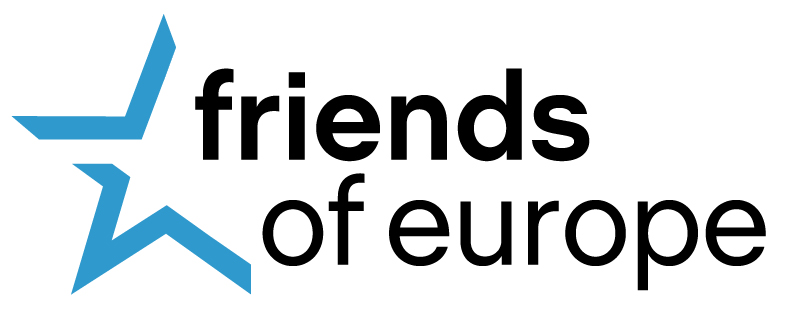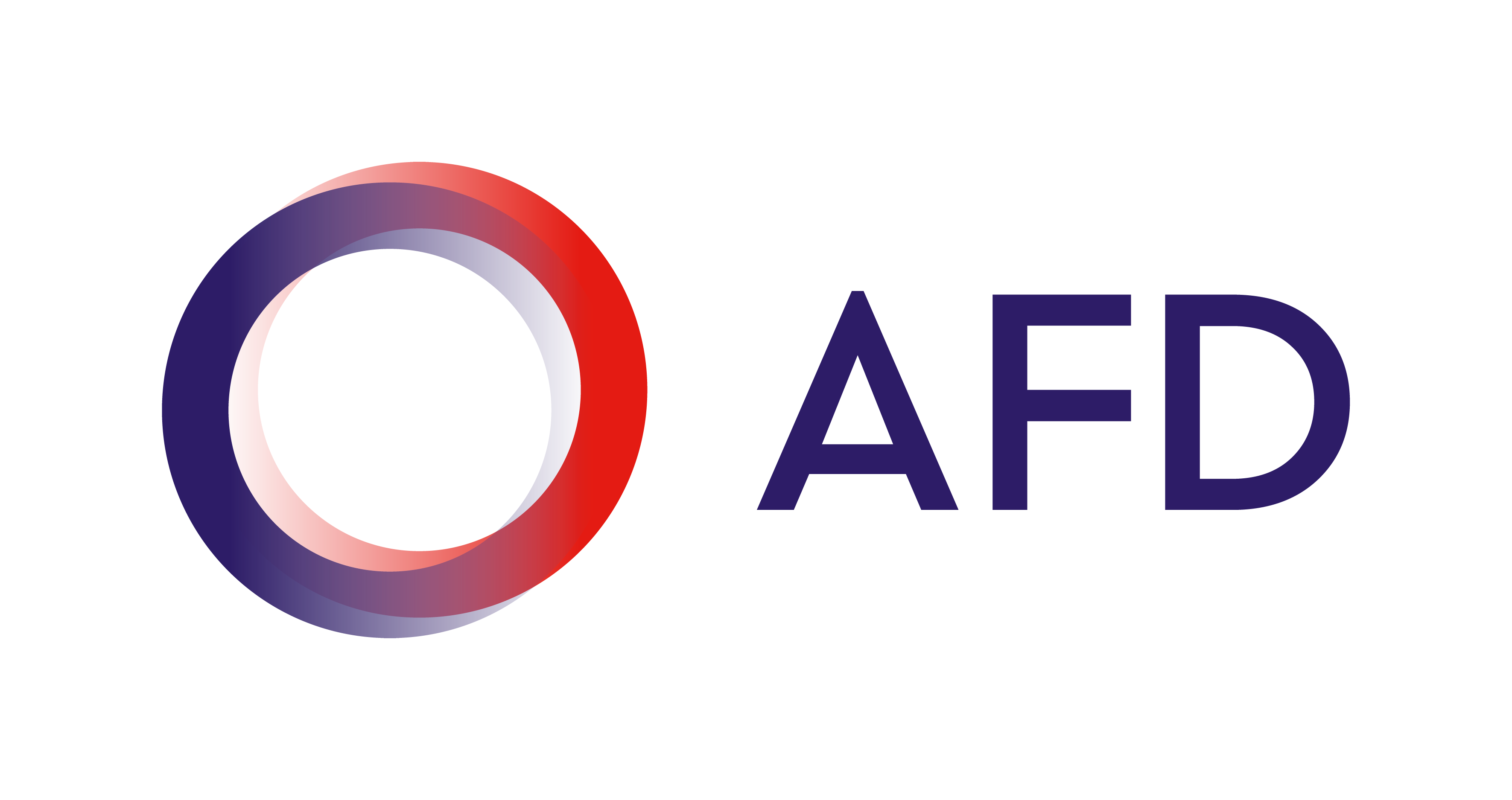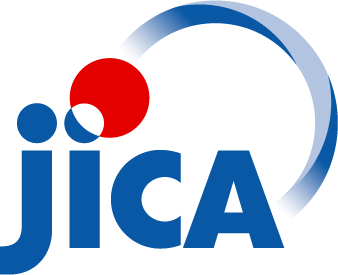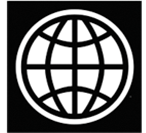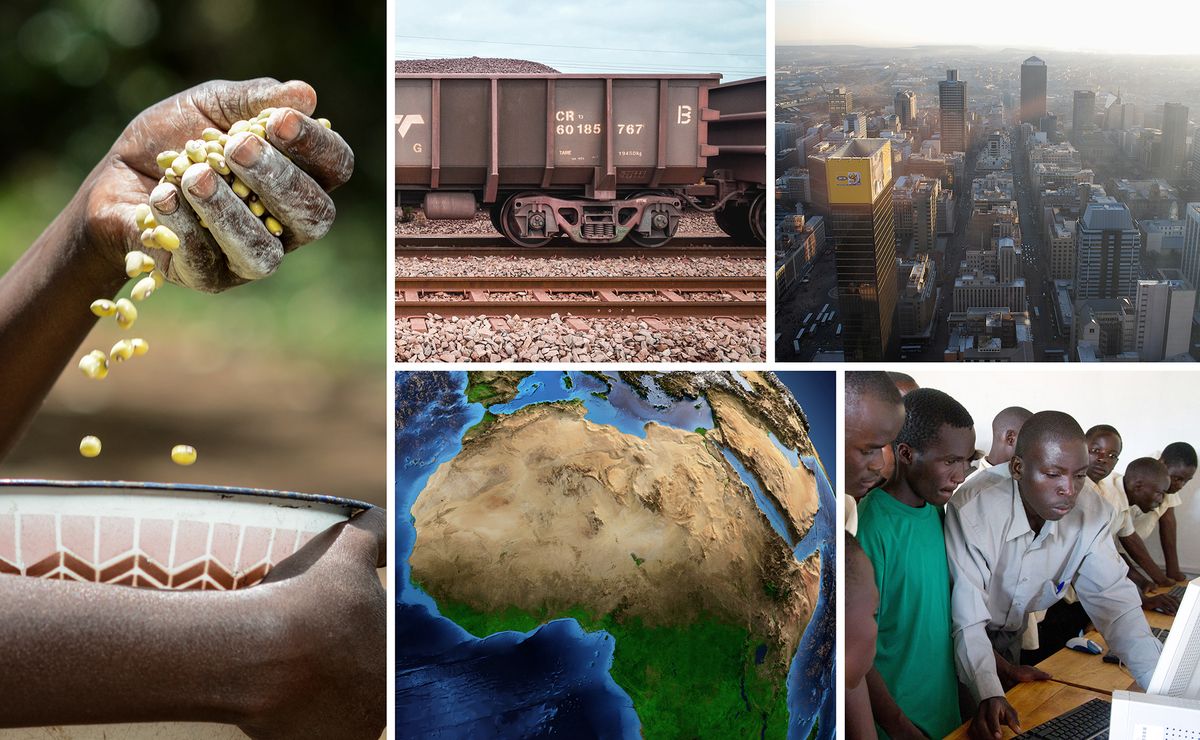
Summary
AFRICA NEEDS STABILITY, GOOD GOVERNANCE TO SPARK ECONOMY
Time for leaders to stop just talking
Better governance is needed to help Africa tap its huge potential and manage the challenges it is faced with, including the urban-rural divide and continued war and conflict, participants told a Friends of Europe conference on 6 June.
“It is time for our leaders to stop just talking,” said Kanayo F. Nwanze, President of the International Fund for Agricultural Development (2009-2017) and Member of the Global Agenda Council on Food Security of the World Economic Forum. “What we need is action. We need dedicated political leaders who are there to serve the people, not to exploit them. They should be dedicated to the welfare of the people they are supposed to lead.”
He was speaking at the Africa Summit on the challenges for ensuring resilient, inclusive and sustainable growth. The continent contains seven of the ten fastest-growing economies in the world, and more than half of Africans are expected to live in cities by 2050. But Africa is also home to over two-thirds of the world’s least-developed countries (LDCs) and half of fragile and conflict-affected States (FCS). To ensure a more prosperous future for millions of Africans, it is essential to break the vicious circle of poverty and conflict.
“We want to create incentives for peace and stability, but we know that conflict drives investors away,” said Neil Gregory, Head of Thought Leadership at the International Finance Corporation (IFC). “We really want to understand better how we can help businesses grow in difficult environments. We have to reduce the level of risk for investors who have little understanding or knowledge of these markets.”

Event recording
Africa Summit - Building resilient, inclusive and sustainable growth Should you not be able to see the gallery, please click here.
Should you not be able to see the gallery, please click here.
About
Held on the eve of the European Development Days, this high-level conference will look at the challenges and opportunities Africa must grapple with to ensure resilient, inclusive and sustainable growth. The continent is home to seven of the ten fastest-growing economies in the world, but its continued growth and development still faces many challenges. With over two thirds of the world’s Least Developed Countries (LDCs), and half of Fragile and Conflict-affected States (FCS) situated on the continent, breaking the vicious circle of poverty and conflict is vital to ensuring a more prosperous future for millions of Africans. In addition, with more than half of Africans expected to live in cities by 2050, urbanisation is key to growth and development in Africa; whilst rural development will be central to the quantum leap in the rate of progress required for LDCs to achieve the SDGs. With some of Africa’s top politicians and decision-makers in attendance, we will be debating ways of further re-energising the region’s growth and development.
Related content:
- Friends of Europe: EU-Africa relations: strategies for a renewed partnership
IMAGE CREDIT: CC / Flickr – Xevi V; jbdodane; CIAT; titoOnz/Bigstock.com
Schedule
With more than half of Africans expected to live in cities by 2050, urbanisation is the key to growth and development in Africa, bringing about considerable opportunities for structural transformation. If harnessed by adequate policies, urbanisation can help advance economic development through higher agricultural productivity, industrialisation, services stimulated by the growth of the middle class, and foreign direct investment in urban corridors. It also can promote social development through safer and inclusive urban housing and robust social safety nets. Meanwhile, the pivotal role of young Agripreneurs must also be recognised. In rural areas, young people can be important drivers of agri-business and be key to positive rural transformation. Yet their potential remains largely untapped. With more than two thirds of people in LDCs living in rural areas, rural development will be central to the quantum leap in the rate of progress required for LDCs to achieve the SDGs. Rural development is essential, not only to poverty eradication, employment generation and economic development, but also to sustainable urbanisation.
- What can be done to ensure Africa’s urbanisation is sustainable, inclusive and resilient?
- Are governments doing what is needed to create employment in rural communities as well as rapidly expanding urban centres?
- What role is there for the private sector in ensuring sustainable and inclusive African agriculture, improving food security and establishing global production networks?
- How can new technologies be used to help Africa’s urbanisation and rural development?
- With women being key contributors to food production in Africa, are there special policies in place to help women farmers?
Speakers
Margaret Agama-Anyetei
Head of Division for Health, Nutrition and Population at the African Union Commission
Hiroshi Hiraoka
Senior Advisor for Food and Nutrition at the Japan International Cooperation Agency (JICA)
Caroline Kawira
Food Security Expert at the African, Caribbean & Pacific Young Professionals Network (ACP YPN)
Célestine Ketcha Courtès
Mayor of Bangangté, Cameroon
Kanayo F. Nwanze
President of the International Fund for Agricultural Development (IFAD) (2009-2017) and Member of the Global Agenda Council on Food Security of the World Economic Forum
Vimal Shah
Chairman of BIDCO Africa
Diederick Zambon
Head of Division for Country Relations and Public Sector, Sub-Saharan Africa, at the European Investment Bank (EIB)
Moderator
Shada Islam
Managing Director at New Horizons Project
Africa is home to seven of the 10 fastest-growing economies, but also to over two thirds of the Least Developed Countries (LDCs), and half of the Fragile and Conflict-affected States (FCS) of the world. Poverty and conflict are intertwined in ways that reinforce each other: conflict impoverishes communities, and poor communities are more vulnerable to conflict. This vicious cycle condemns millions of Africans to a less prosperous future. While government policies and cooperation with international development partners are essential, ending fragility and building peaceful and resilient societies requires the engagement of local authorities, civil society actors, religious and cultural leaders as well as women and young people. Private enterprises also have an important role to play by creating jobs and growth, thereby enhancing incentives for peace and development.
- What are the necessary conditions for private sector investments in fragile and conflict-related situations in Africa?
- Despite the negative headlines, are there business opportunities which can help bring peace in Africa’s most sensitive hotspots?
- Are there African success stories of transition to economic growth and prosperity that the rest of the continent can learn from?
- What can Africa learn from other conflict-affected regions of the world?
- How can governments and the private sector work together to consolidate peace?
- What is the role of civil society actors, including women and young people, in the fight against poverty and conflict?
Speakers
Evelyn Anite
Ugandan State Minister for Investment and Privatisation
Olivier De Boysson
Chief Economist for Emerging Markets at Société Générale
Leymah Gbowee
Liberian Peace Activist and 2011 Nobel Peace Prize Winner
Neil Gregory
Head of Thought Leadership at the International Finance Corporation (IFC)
Hans-Joachim Preuss
Managing Director of the Deutsche Gesellschaft für Internationale Zusammenarbeit (GIZ)
Antonella Santilli
Head of Sustainability at Enel Green Power
Moderator
Shada Islam
Managing Director at New Horizons Project
Speakers
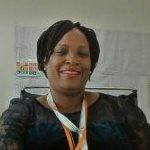
Head of Division for Health, Nutrition and Population at the African Union Commission
Margaret Agama-Anyetei plays a leading role in the development of programmes and policies related to population, health and nutrition at the continental level, and oversees their implementation within the 54 member states of the African Union. She has more than 15 years of experience in the field of health and development, having previously worked –among other senior positions- for the United Nations Population Fund (UNFPA) as Resident Representative to the Democratic Republic of the Congo and as Technical Advisor, where she focused on the fight against HIV and AIDS and helped African countries and regional organisations realise the Millennium Development Goals.
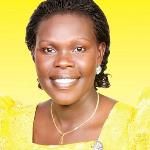
Ugandan State Minister for Investment and Privatisation
As State Minister for Investment and Privatisation in the Ministry of Finance, Planning and Economic Development, Evelyn Anite is a key player in the economic development of Uganda, overseeing an important effort by the government to support private sector growth and investments to achieve infrastructural, industrial and agricultural development. The country has attracted some of the highest levels of foreign direct investment in the East Africa Community region over the past five years. She won the parliamentary seat of Youth Representative for Northern Uganda in 2011 and was the State Minister for Youth and Children Affairs prior to her current appointment.
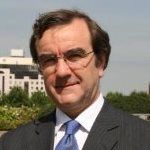
Chief Economist for Emerging Markets at Société Générale
In his current position, Olivier De Boysson is responsible for the analysis of developing economies and particularly for country-based risk assessments to inform the investment and credit policy of Société Générale. The group, one of the biggest bank and financial services organisation in Europe, is active in a number of African fragile and conflict-affected states, including Guinea, Cote d’Ivoire, and Mauritania. Olivier de Boysson is also the Deputy Director for Economic Studies in Société Générale’s Risk Department, responsible for macroeconomic projections and macro financial risk analysis, and lectures in country risk analysis at Sciences Po Paris.
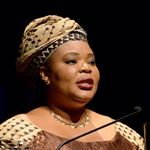
Liberian Peace Activist and 2011 Nobel Peace Prize Winner
Leymah Gbowee is an internationally-recognised peace activist, social worker and women’s rights advocate. She received the Nobel Peace Prize in 2011 for her work in leading a women’s peace movement that brought an end to the Second Liberian Civil War in 2003, and continues to be a relentless advocate of the cause of women, raising awareness of the devastating effects of war and gender-based violence and campaigning for women’s inclusion in conflict-resolution and peacebuilding processes. She is the Founder and President of the Gbowee Peace Foundation Africa, which provides educational and leadership opportunities to girls, women and young people in West Africa. She also co-founded the Women Peace and Security Network Africa and is a member of the PeaceJam Foundation, an international organisation committed to breaking the cycle of violence.
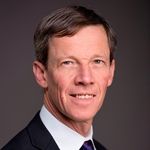
Head of Thought Leadership at the International Finance Corporation (IFC)
Neil Gregory is a leading voice on the role of private enterprise in economic development and the financing of private investment in emerging markets. As Head of Thought Leadership at IFC, the largest global development institution focused exclusively on the private sector in developing countries, he is responsible for the provision of fresh and innovative ideas to reduce global poverty. He has extensive experience in strategy and investment operations, having previously served as IFC’s Chief Strategy Officer for Investment Operations, Chief of Strategy and Operations for the World Bank Group’s Financial and Private Sector Development Network and Advisor to the UK Executive Director of the IMF.

Senior Advisor for Food and Nutrition at the Japan International Cooperation Agency (JICA)
Hiroshi Hiraoka is an expert on agricultural development in Africa. In his current position as Senior Advisor at JICA, the Japanese cooperation and development agency, he is contributing to the promotion of agricultural and economic development on a global scale. He was previously the Coordinator of the Secretariat of the Coalition for African Rice Development, assisting the development of the rice sector in Africa, and also worked at the World Bank where he was Senior Agriculture Economist in charge of rice, nutrition and value chain development.
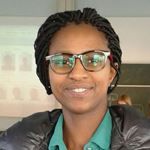
Food Security Expert at the African, Caribbean & Pacific Young Professionals Network (ACP YPN)
Caroline Kawira is the food security expert of the ACP YPN, which provides a platform for young professionals and diaspora from Africa, Caribbean and Pacific to play an active role in policymaking processes at the national, regional and international levels. She has extensive experience in the field of agriculture development, having worked at the International Potato Centre of Nairobi, a research institution creating sustainable, global solutions to solve world hunger and poverty, as well as at several other international humanitarian organisations. She studied in Kenya, where she is a registered member of the Nutritionists and Dieticians Institute, and in Belgium, where she graduated with a masters’ degree in Science in Nutrition and Rural Development from Ghent University.
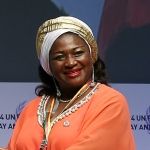
Mayor of Bangangté, Cameroon
Elected mayor of Bangangté in 2007, Celestine Ketcha Courtes’ great contribution to the development of the town was recognised by the United Nations in 2014, when she received the Public Service Award for a project aimed at providing drinking water to all inhabitants of the city and surrounding villages, improving the living conditions of more than 150,000 people. She is also a key advocate of women political engagement in Africa, currently serving as the President of the Network for Locally Elected Women of Africa, which brings together women elected in local government positions.
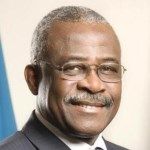
President of the International Fund for Agricultural Development (IFAD) (2009-2017) and Member of the Global Agenda Council on Food Security of the World Economic Forum
Kanayo F. Nwanze has over 30 years’ experience in improving the livelihoods of poor rural communities, having most recently served as President of IFAD, the specialised United Nations agency dedicated to eradicating rural poverty in developing countries.
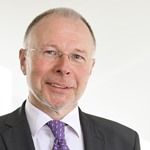
Managing Director of the Deutsche Gesellschaft für Internationale Zusammenarbeit (GIZ)
Hans-Joachim Preuß has been Managing Director and Member of the Management Board of GIZ since 2011. GIZ, the German development agency, leads on more than 450 projects in Africa in a variety of sectors, including in conflict prevention and resolution, peace and security. Hans-Joachim Preuß previously served as Secretary-General and Managing Director of Welthungerhilfe, one of the largest private aid organisations in Germany which has set itself the goal of banishing famine and poverty from the world. He has published extensively on rural development, global food supplies and fragile statehood. He is also a Member of the Management Board of the German-African Business Association and a Member of the Board of Trustees of the Aid by Trade Foundation, amongst other positions.

Head of Sustainability at Enel Green Power
Antonella Santilli joined Enel, a global power company, in 2004 and worked in international coordination in the field of External Relations for Enel Green Power Chile and Andean Countries before her current appointment as Head of Sustainability at Enel Green Power, Enel’s renewable division. Enel Green Power is the largest independent power producer in Africa, active in South Africa, Morocco, Kenya and Zambia, among other coutries. Antonella Santilli’s prior experience includes senior positions at Ketchum PR, Hill & Knowlton and Wind Spa.
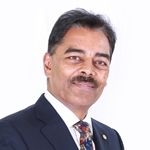
Chairman of BIDCO Africa
Vimal Shah is one of Kenya and East Africa’s most successful businessmen and leads Bidco Africa, the largest manufacturer of edible oils in East and Central Africa, present in over 18 countries. As Chairman, Vimal Shah is responsible for the company’s growth into new markets and new products development. He has received a number of awards for his contribution to the growth of entrepreneurship in Kenya, including the East African Entrepreneur of the Year award of the All Africa Business Leaders Awards (AABLA), and CEO of the Year award of the Kenya Institute of Management. He has also been awarded the “First Class: Chief of the Order of the Burning Spear”, the highest national honour for a private citizen in Kenya, in recognition of his contribution to the national development.
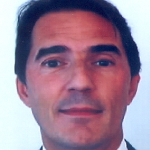
Head of Division for Country Relations and Public Sector, Sub-Saharan Africa, at the European Investment Bank (EIB)
With more than 20 years of experience at the European Investment Bank (EIB), Diedrick Zambon previously served as the Head of the Southern Africa and Indian Ocean Division, and was also responsible for setting up the Bank’s External Office in Tunisia in 2005. The EIB has over 50 years’ expertise in supporting EU development policies in Africa, with around €25bn invested in over 1,200 projects. Its overriding aim in the region is to help generate long-term private sector-led sustainable economic growth and reduce poverty through job creation and improved access to productive resources. It also supports public sector infrastructure projects that are vital to underpin private sector development and create a thriving business environment. Before joining the EIB, Diedrick Zambon worked for a major European commercial bank.
Continue
the debate on
- Debating Europe
